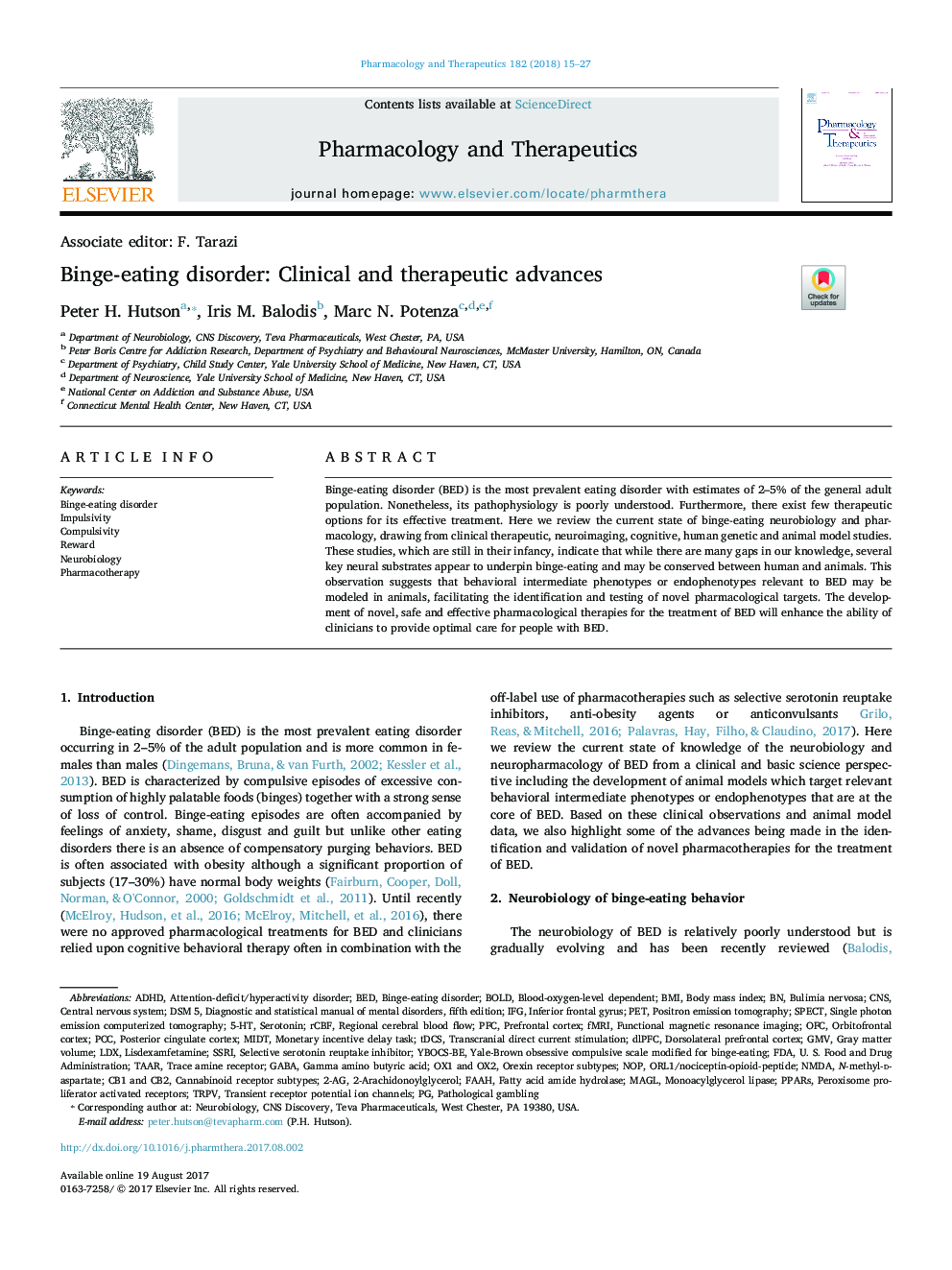| Article ID | Journal | Published Year | Pages | File Type |
|---|---|---|---|---|
| 8536923 | Pharmacology & Therapeutics | 2018 | 13 Pages |
Abstract
Binge-eating disorder (BED) is the most prevalent eating disorder with estimates of 2-5% of the general adult population. Nonetheless, its pathophysiology is poorly understood. Furthermore, there exist few therapeutic options for its effective treatment. Here we review the current state of binge-eating neurobiology and pharmacology, drawing from clinical therapeutic, neuroimaging, cognitive, human genetic and animal model studies. These studies, which are still in their infancy, indicate that while there are many gaps in our knowledge, several key neural substrates appear to underpin binge-eating and may be conserved between human and animals. This observation suggests that behavioral intermediate phenotypes or endophenotypes relevant to BED may be modeled in animals, facilitating the identification and testing of novel pharmacological targets. The development of novel, safe and effective pharmacological therapies for the treatment of BED will enhance the ability of clinicians to provide optimal care for people with BED.
Keywords
NOPBOLDmagltDCSN-methyl-d-aspartateDSM 5DLPFCIFGOFCNMDATRPVLisdexamfetamine2-arachidonoylglycerolFAAHLDXGMVrCBF5-HT2-AGPFCPCCTransient receptor potential ion channelsFDAPPARsbinge-eating disorderAttention-Deficit/Hyperactivity DisorderFatty acid amide hydrolasegamma amino butyric acidSPECTBEDADHDTAARTranscranial direct current stimulationcompulsivityfMRIfunctional magnetic resonance imagingSingle photon emission computerized tomographyPositron emission tomographyimpulsivityRegional cerebral blood flowgray matter volumePharmacotherapyCNSDiagnostic and Statistical Manual of Mental Disorders, Fifth EditionSerotonincentral nervous systembody mass indexBMIinferior frontal gyrusprefrontal cortexorbitofrontal cortexposterior cingulate cortexdorsolateral prefrontal cortexPathological gamblingmonoacylglycerol lipaseSelective serotonin reuptake inhibitorSSRINeurobiologyblood-oxygen-level dependentRewardPETBulimia nervosaMonetary incentive delay taskGABAperoxisome proliferator activated receptors
Related Topics
Health Sciences
Pharmacology, Toxicology and Pharmaceutical Science
Pharmacology
Authors
Peter H. Hutson, Iris M. Balodis, Marc N. Potenza,
